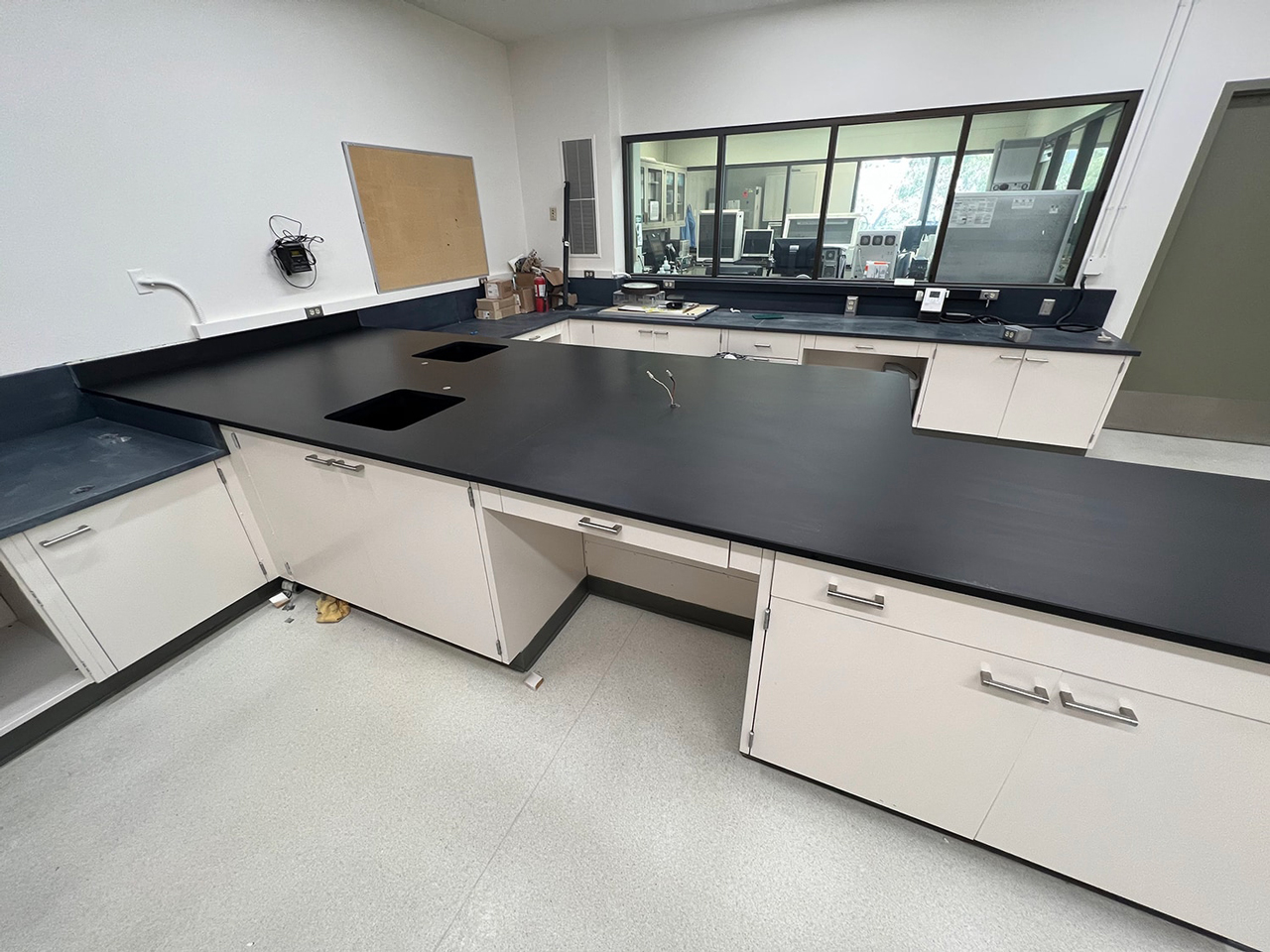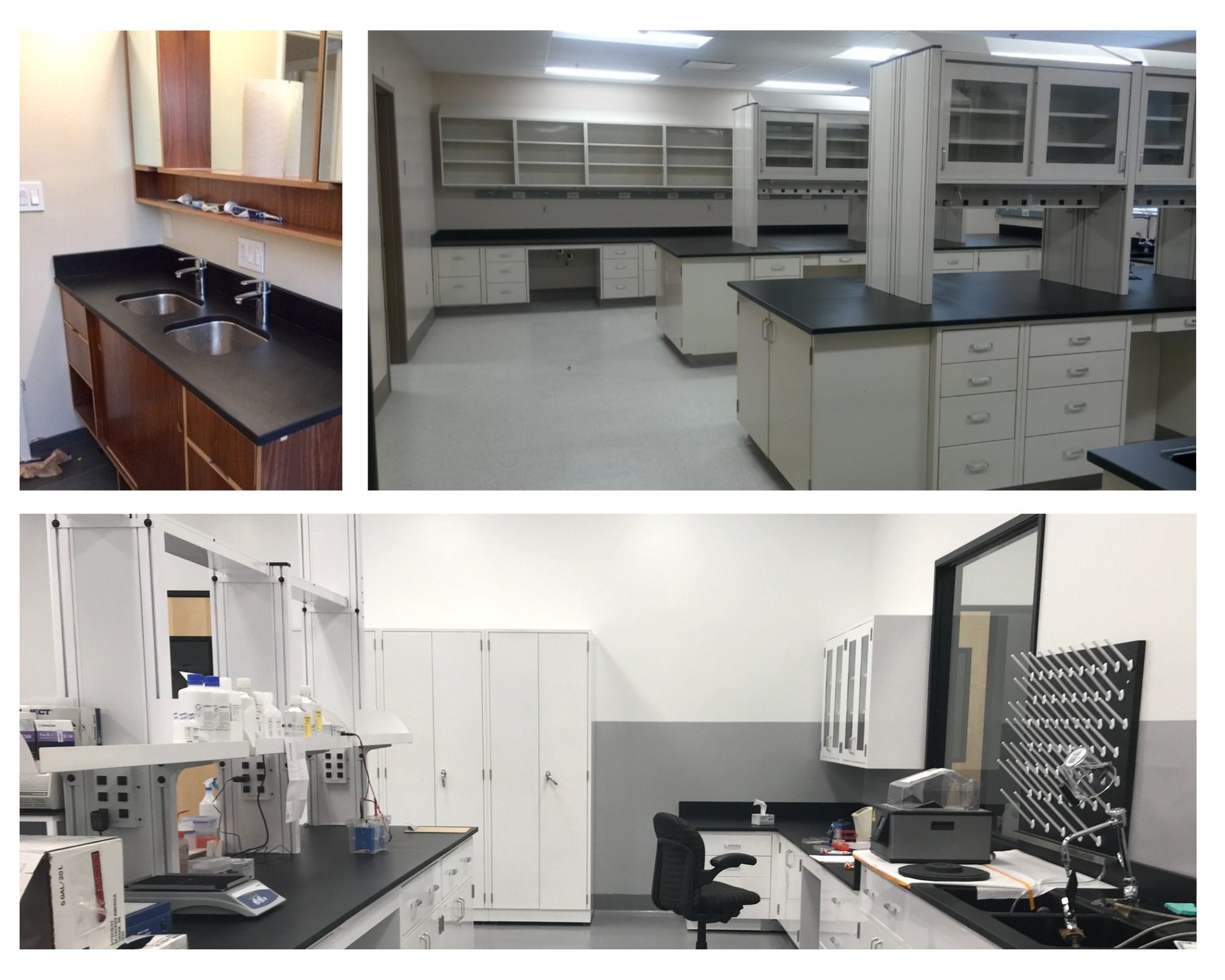Laboratory-grade countertops play a crucial role in creating efficient and safe workspaces for scientific research, industry, and educational institutions. These countertops are designed to meet the demanding requirements of laboratory environments, providing exceptional durability, chemical resistance, heat resistance, and more. Among the various options available, phenolic resin countertops stand out as a popular choice due to their unique properties and wide range of applications.
In this comprehensive guide, we will explore the special features that make laboratory-grade countertops so valuable. We will delve into the advantages of using phenolic resin countertops, their resistance to harsh chemicals, moisture, and heat, and their ability to withstand impacts and scratches.
Whether it’s a science research lab, university lab, or application-specific lab, understanding the benefits and characteristics of laboratory-grade countertops is essential for creating a functional and safe laboratory environment.
Understand Laboratory-Grade Countertops: Exploring Phenolic Resin as an Ideal Choice
Laboratory-grade countertops are essential components of a well-equipped lab, providing a reliable and functional work surface. Among the various materials available, phenolic resin countertops have gained significant popularity due to their exceptional properties. Phenolic resin is a versatile material known for its high resistance to harsh chemicals, moisture, and heat. It offers a durable and stable surface that can withstand continuous use and extreme conditions in laboratory settings.
The unique characteristics of phenolic resin, such as its impact resistance and scratch resistance, make it an ideal choice for laboratories where durability is crucial. Additionally, phenolic resin countertops come in a wide variety of designs and colors, allowing labs to create an attractive and professional environment.
The Versatility of Phenolic Resin Countertops in Laboratory Applications
Phenolic resin countertops exhibit remarkable versatility, making them suitable for a wide range of laboratory applications. They are commonly used in scientific research labs, university labs, and other environments where chemical resistance and durability are essential. These countertops provide a reliable surface for conducting experiments, analyzing samples, and handling corrosive chemicals.
Furthermore, phenolic resin countertops are adaptable to different laboratory setups and requirements. They can be customized to include features such as sinks, drip trays, and integrated storage options. This versatility allows labs to optimize their workspace and streamline their processes.
Unveil the Chemical Resistance of Laboratory-Grade Countertops
One of the key advantages of laboratory-grade countertops, including phenolic resin countertops, is their exceptional chemical resistance. They are specifically engineered to withstand exposure to corrosive chemicals, acids, and solvents commonly used in laboratory experiments. Phenolic resin countertops have a non-porous surface that prevents the absorption of liquids, minimizing the risk of chemical damage and contamination.
The chemical resistance of phenolic resin countertops ensures the longevity of the work surface, making them a reliable choice for laboratories that handle a variety of substances. They can withstand prolonged exposure to chemicals without degrading or compromising their structural integrity.
This resistance to chemical corrosion ensures a safe and efficient working environment, where researchers can focus on their experiments without worrying about the potential damage to the countertops.
Heat Resistance and Durability: Key Features of Laboratory Grade Countertops
Laboratory-grade countertops are designed to withstand the rigorous demands of laboratory environments, and two key features that contribute to their performance are heat resistance and durability.
These countertops, including those made of phenolic resin, exhibit excellent resistance to continuous heat exposure and extreme temperatures. They can withstand the hot surfaces of lab equipment, such as Bunsen burners and hot plates, without warping or degrading.
Moreover, laboratory-grade countertops are known for their exceptional durability. They are engineered to resist chipping, cracking, and impact damage that can occur during experiments or when heavy objects are dropped on the surface. This durability ensures a long lifespan for the countertops, reducing the need for frequent replacements and saving costs in the long run.
Moisture Resistance and Its Importance in Laboratory Environments
Moisture resistance is a crucial feature of laboratory-grade countertops, as laboratories often deal with liquids, spills, and humid conditions. Phenolic resin countertops are specifically engineered to have high moisture resistance, making them an ideal choice for laboratories where spills and moisture are common occurrences.
The non-porous nature of phenolic resin prevents liquids from seeping into the surface, reducing the risk of staining, bacterial growth, and structural damage. This moisture resistance also simplifies the cleaning and maintenance process, as spills can be easily wiped away without leaving behind residue or causing long-term damage.
In laboratory environments where accurate measurements and precise experiments are paramount, moisture resistance ensures the integrity of the work surface, allowing researchers to focus on their work without the concern of moisture-related issues.
Scratch and Impact Resistance: Protecting Your Lab Countertops
Laboratory-grade countertops, such as those made from phenolic resin, are designed to withstand the rigors of daily lab activities, including the potential for scratches and impacts. These countertops are engineered to be scratch resistant, minimizing the risk of surface damage from equipment, tools, or abrasive materials.
Furthermore, they exhibit excellent impact resistance, able to withstand accidental impacts or heavy objects being dropped onto the surface. This resilience ensures the longevity of the countertops, reducing the need for repairs or replacements due to accidental damage.
Protecting lab countertops from scratches and impacts is crucial not only for the longevity of the surface but also for maintaining a clean and hygienic environment. Scratches can harbor bacteria or impede accurate measurements, while impacts can compromise the structural integrity of the countertop.
Explore Different Types of Laboratory Grade Countertop Materials with ResinTops.net Today!
Discover the perfect laboratory-grade countertop material for your specific needs by exploring the wide range of options available at ResinTops.net today! Our extensive selection includes phenolic resin countertops, epoxy resin countertops, and solid surface countertops, all designed to meet the highest industry standards.
With our expertise in laboratory surface solutions, we offer a comprehensive range of materials that excel in chemical resistance, heat resistance, moisture resistance, scratch resistance, and impact resistance—like a phenolic board for workshop countertops.
Our experienced team can guide you through the different types of laboratory-grade countertop materials, explaining their unique properties, benefits, and applications. We understand the importance of choosing the right surface material to ensure the functionality, safety, and longevity of your laboratory.
Contact us today at 800-476-5228 or email us at sales@labtechsupplyco.com to explore the various options and discuss your specific requirements. Let ResinTops.net be your trusted partner in providing high-quality, durable, and reliable laboratory-grade countertop materials.



